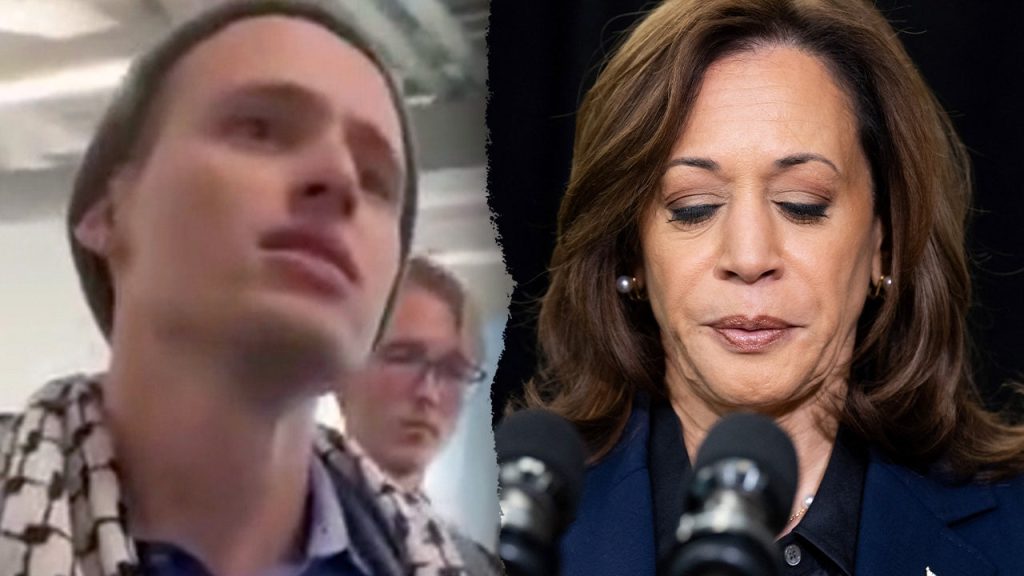During a campaign stop at the University of Wisconsin-Milwaukee, Vice President Kamala Harris appeared to agree with an anti-Israel protester who accused the Jewish state of genocide. In response to the protester’s claims, Harris expressed her desire for a ceasefire and for the war to end. The protester continued to accuse Israel of genocide and questioned the U.S. providing billions of dollars to the country. Despite Harris attempting to move on and address the audience, the protester’s claims were not dismissed by the vice president.
After the protester was removed from the crowd, Harris addressed the audience and appeared to acknowledge the validity of the protester’s claims. While the topic was not what she intended to discuss, Harris stated that the issues raised by the protester were real and that she respected his voice. This exchange is not the first time that Harris has seemingly agreed with accusations of genocide against Israel. In previous instances, she has applauded students for speaking their truth and criticizing Israel for alleged atrocities.
The protester’s accusations against Israel come amidst the Israel-Hamas conflict, where tensions have escalated leading to casualties on both sides. Harris’ response to the protester highlights the ongoing debate surrounding U.S. support for Israel and the allegations of human rights violations committed by the country. By acknowledging the concerns raised by the protester, Harris signals her support for allowing various perspectives to be heard in a democracy, even if they may contradict mainstream narratives.
Harris’ response to the anti-Israel protester has sparked controversy and debate regarding her stance on the Israel-Palestine conflict. While some view her acknowledgment of the protester’s claims as a positive step towards addressing human rights violations, others criticize her for seemingly legitimizing accusations of genocide against Israel. The exchange reflects the complex dynamics surrounding U.S. foreign policy in the Middle East and the competing interests at play in the region.
As Vice President, Harris plays a significant role in shaping U.S. foreign policy, including its relationship with Israel. Her interactions with anti-Israel protesters highlight the challenges of navigating the complexities of the Israel-Palestine conflict and addressing human rights concerns while maintaining diplomatic relations. The controversy surrounding Harris’ responses underscores the need for thoughtful and balanced approaches to addressing conflict and promoting peace in the region.
Overall, Harris’ encounter with an anti-Israel protester sheds light on the ongoing debate surrounding U.S. support for Israel and allegations of human rights violations. By acknowledging the protester’s claims, Harris signals her commitment to allowing diverse perspectives to be heard. However, her responses have also sparked criticism and raised questions about her stance on the Israel-Palestine conflict. As Vice President, Harris’s interactions with protesters and critics will continue to be scrutinized as she navigates the complexities of U.S. foreign policy in the Middle East.













